MAIN SERVICES


The ophthalmological services are provided by two veterinarians who are passioned by their work, Dr Franck Ollivier and Dre Marie-Pier Boutin. They will welcome you and your pet for consultations in ophthalmology as well as ocular surgeries.
The Ophtalmo Vétérinaire clinic is completely dedicated to providing your pet with the best ocular care possible in a professional, convivial, and warm environment.
Ocular examination
We perform a full eye examination using specialized equipment. All the exam procedures are conducted in an environment that is calm and controlled, in the most gentle way possible, using the least possible of restraining, and favoring the use of treats to handle your pets.
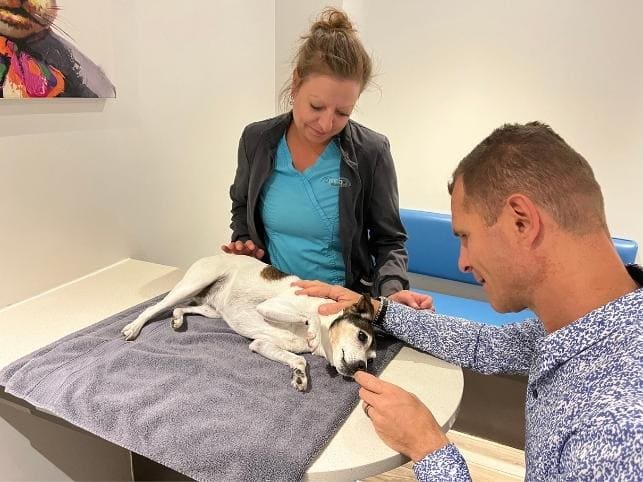
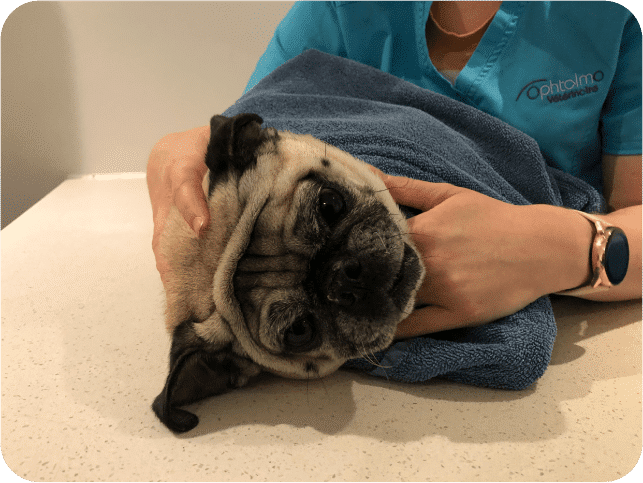
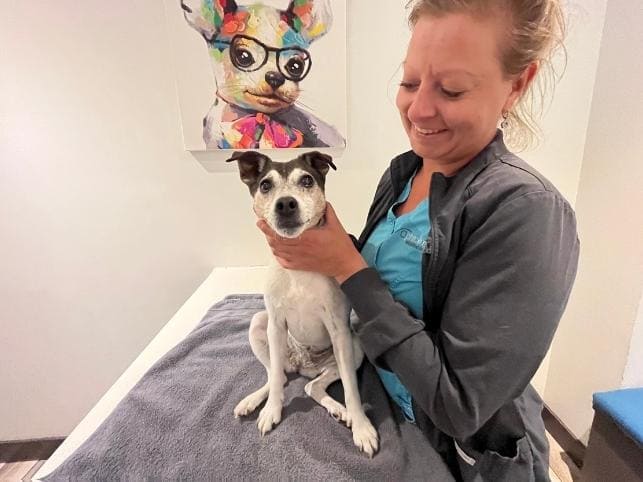

The first step of the ocular exam consists of:



Then, according to the first observations made, some rapid ocular tests could be recommended such as :



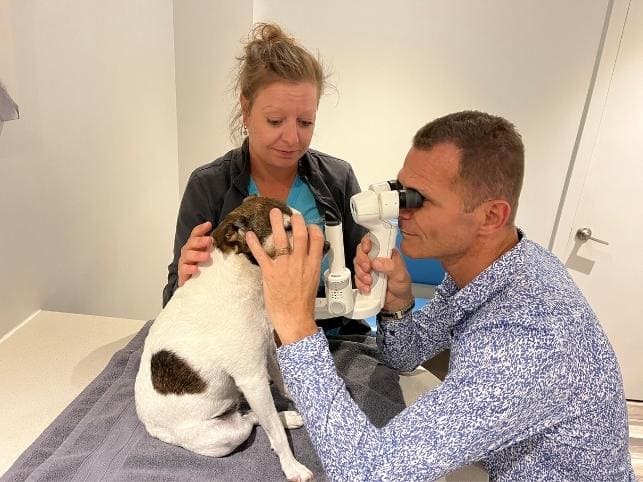
Slit-lamp exam
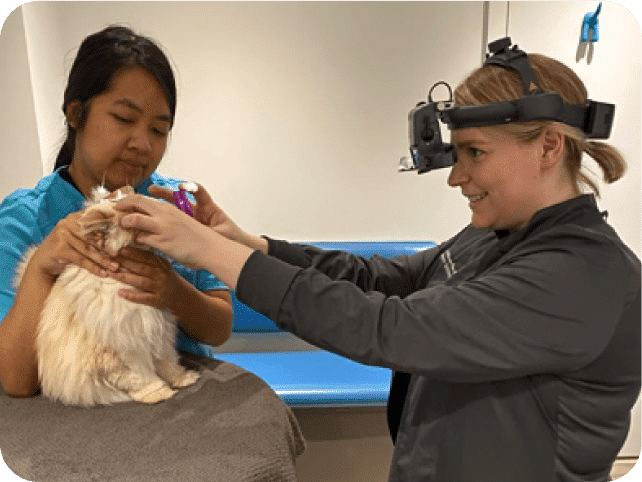
Indirect ophthalmoscopy
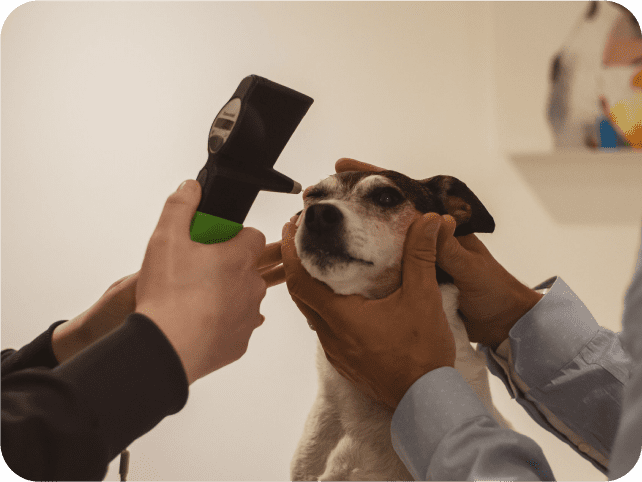
Tonometry
When the complete eye exam is done, it is sometimes necessary to perform more advanced complementary tests to further determine the diagnosis, the treatment, or the prognosis. These complementary tests allow us to detect diseases that could not be identified during the regular eye exam. Furthermore, some of these ancillary tests such as an ultrasound, or blood work are necessary prior to a surgical procedure. We will continually discuss all the possible options for you to make the best decision.

Additional tests that could be necessary:






Following these tests, we will propose the medical and/or surgical treatment that best suits your pet’s condition. Working hand in hand with your family veterinarian, we will always offer your pet the most appropriate treatment, while taking time to answer any questions or concerns you might have.
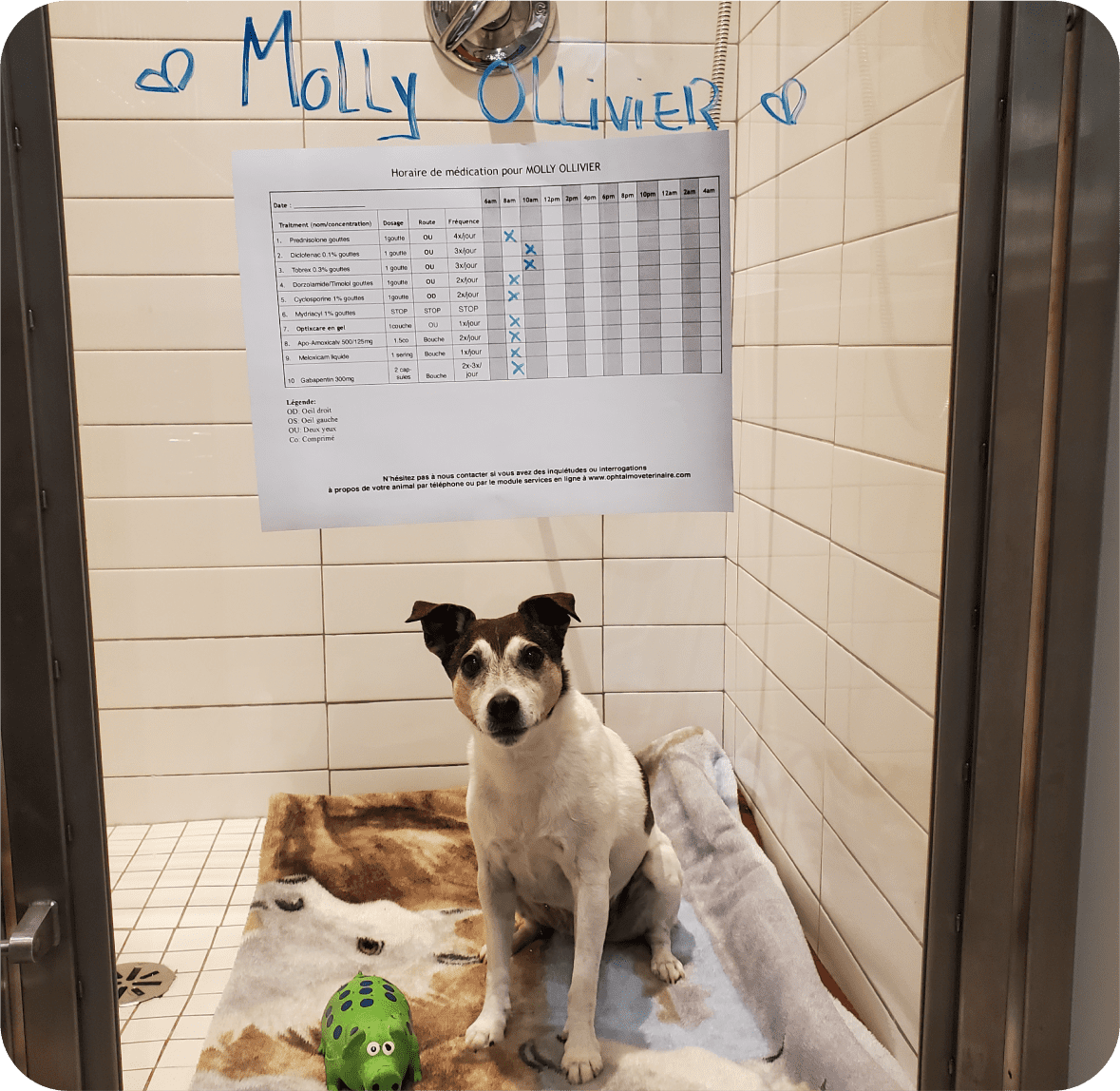
MEDICAL TREATMENTS WITH OR WITHOUT HOSPITALIZATION
If the circumstances allow it, we will first offer you a medical treatment (often more cost efficient). This treatment can consist of drops or ointments to be applied a few times daily, or tablets, capsules, or liquids to be given by mouth. In many instances, a plastic cone (Elizabethan collar) is necessary, for at least a few days to avoid your pet creating more damage by rubbing or scratching.
We will of course, take the time to explain the role of each medicine and how to administer them to your animal so that you may continue the treatment at home in an effective and safe manner. The respect of our treatment recommendations is the foundation for your pet to heal appropriately. We will therefore do all what we can to help you understand how to treat your pet (1-on-1 explanation, phone support, treatment spreadsheet, etc.).
Medical treatments sometimes may need to be given so frequently during the day that they become overwhelming to you. In such cases, we can offer to hospitalize your animal so that we can provide them intensive medical care and relieve you of this difficult task.
We do however try to limit hospitalizations as we think that pets heal faster when they are at home than when they are hospitalized, much like humans!
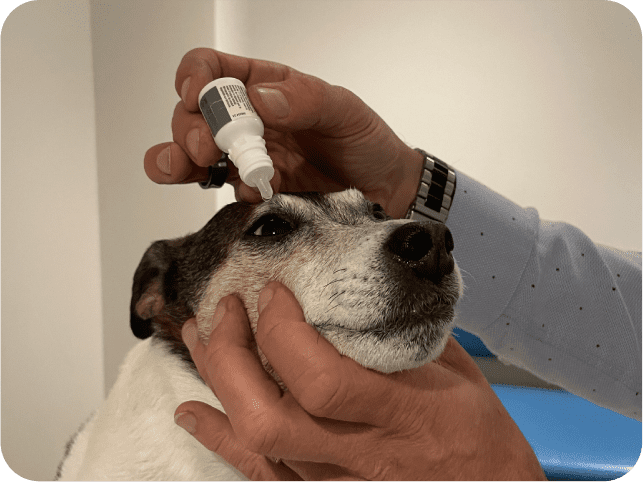
Drop
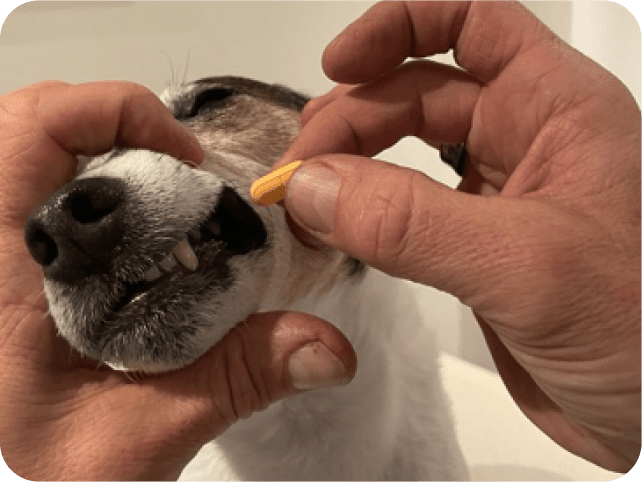
Tablet or capsule
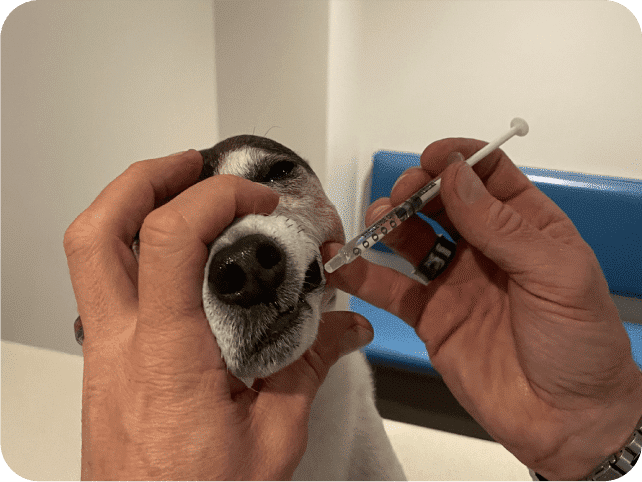
Liquid using a syringe
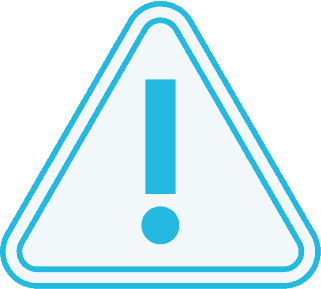
WHEN TO MAKE AN APPOINTMENT?
Animals do not show discomfort or pain like humans do. Vision is an important sense. For these reasons, do not hesitate to consult your family veterinarian if you observe any of the following alert signs:










Your dog could also belong to one of the breeds predisposed to a hereditary ocular disease.Please consult our lists of breeds predisposed to glaucoma, cataract and kerato-conjunctivitis sicca (KCS). Do not hesitate to seek advice from your family veterinarian or to contact us to discuss.
Your family veterinarian has received a good general training and they can address most ocular diseases, especially ones that need to be urgently treated.
If they observe that your animal needs a more advanced exam in order to confirm their diagnosis, medical, or surgical treatment you will be referred to our clinic for specialized veterinary ophthalmology care.
Be reassured that we maintain a close collaboration with family veterinarians to help them in their general practice.
THE MAIN STRENGTH OF OUR SERVICE
One of the main strengths of our service is the high quality of veterinary care provided to animals, due to the high-tech equipment, great expertise of our veterinarians, and the devoted team of receptionists, animal technicians, and helpers.

